
Drama, as an essential vehicle for human expression, traces its roots back to ancient civilizations, most notably Ancient Greece. This birthplace of drama did not only contribute some of the earliest theatrical works but laid the groundwork for how theatre and performance art shape cultures around the world.
The Origins of Drama in Ancient Greece
Drama in Ancient Greece began as part of religious festivals honoring Dionysus, the god of wine and fertility. These festivals, which featured dramatic tragedies and comedies, were not only a form of entertainment but served a significant social and religious purpose.
These early dramatic works were performed during the Dionysian festivals in Athens, where playwrights like Aeschylus, Sophocles, and Euripides introduced fundamental theatrical concepts that are still studied and admired today.
The Impact on Culture and Society
The significance of drama in Ancient Greece extends far beyond the confines of the stage. It mirrored societal values, explored human experiences, and often addressed moral and philosophical questions facing the society.
Greek drama illustrated the complexities of human emotion and conflict, challenging audiences to reflect on ethical dilemmas and the human condition. The tradition of drama influencing cultural dialogue persists, exemplified by modern theatrical works.
The Evolution and Influence of Greek Drama
Greek theatre evolved considerably over the centuries, influencing Roman theatre, and later, become a building block for the Renaissance plays of Shakespeare and Molière. The structure, themes, and character archetypes established by Greek dramatists have pervaded various forms of storytelling across different media throughout history.
Even in contemporary times, elements of Greek drama are evident in modern literature, film, and television, demonstrating its enduring legacy.
The Global Spread of Dramatic Traditions
While Greece is celebrated for originating drama, it also encountered other forms of performance art from Asia and the Middle East. This cultural exchange enriched Greek drama and, consequently, the dramatic tradition worldwide.
Over centuries, drama has been adapted to various cultural contexts, providing a versatile medium to navigate cultural narratives and political commentary.
The Educational and Reflective Role of Drama
Drama is not only a form of entertainment but also an educational tool that encourages audiences to engage cognitively and emotionally with performances.
A study of Greek drama provides insights into history, social norms, and languages, and offers a mechanism for empathy and critical thinking. Its dynamic nature continues to educate and inspire creativity.
Conclusion
The birthplace of drama is not simply a title for Ancient Greece; it symbolizes the origin of a rich tradition of storytelling that transcends time and geography. Drama, with its classical beginnings, remains a critical avenue for exploring the human psyche, societal norms, and innovative creativity.
Drama in Ancient Greece began as part of religious festivals honoring Dionysus, the god of wine and fertility. Greek drama illustrated the complexities of human emotion and conflict, challenging audiences to reflect on ethical dilemmas and the human condition. 
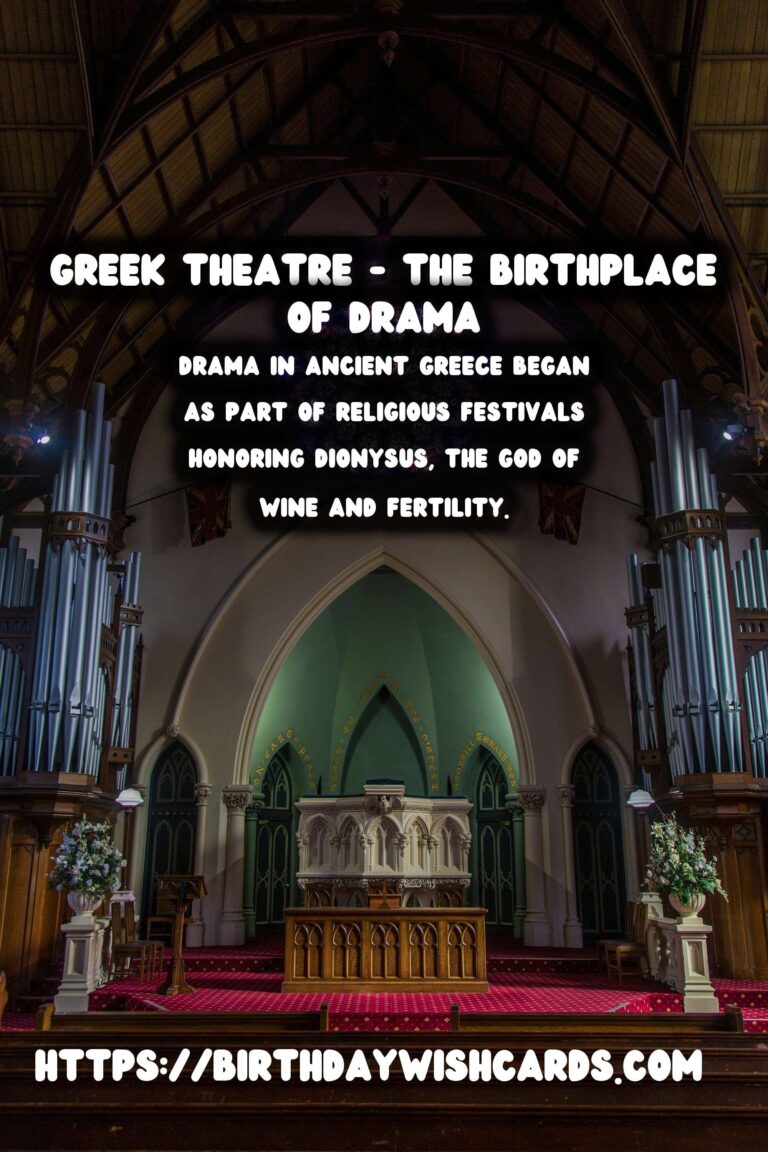
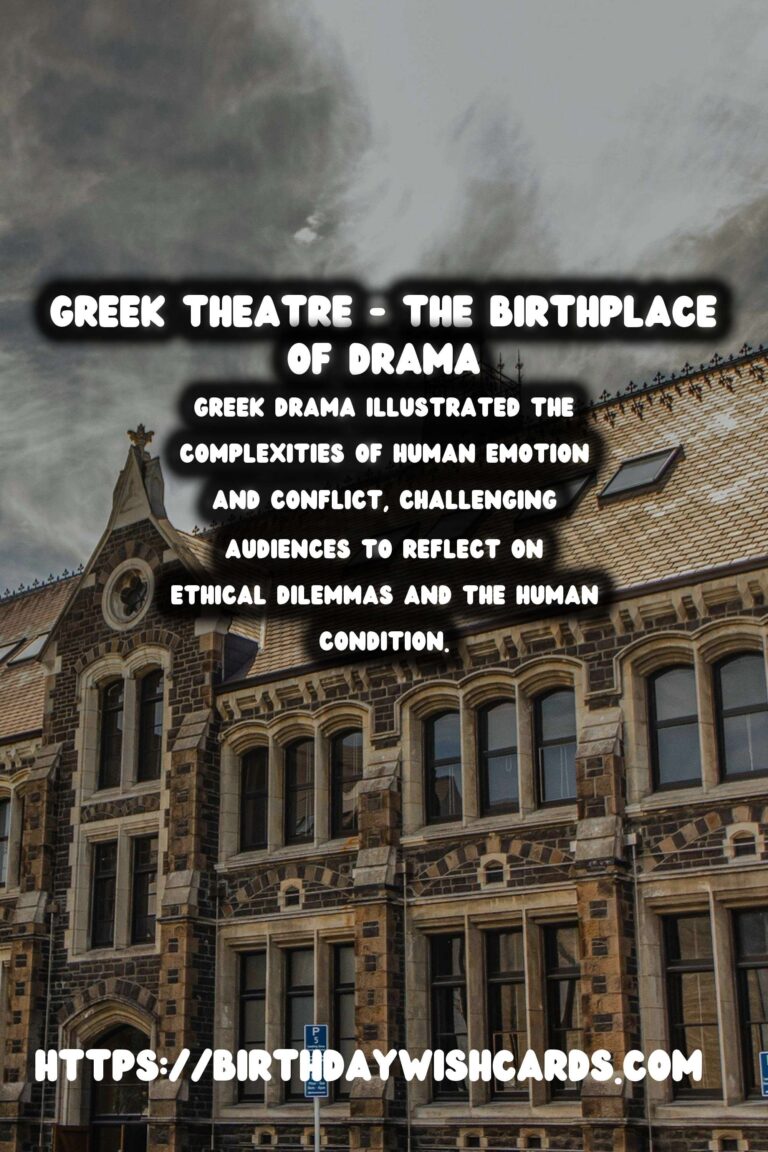
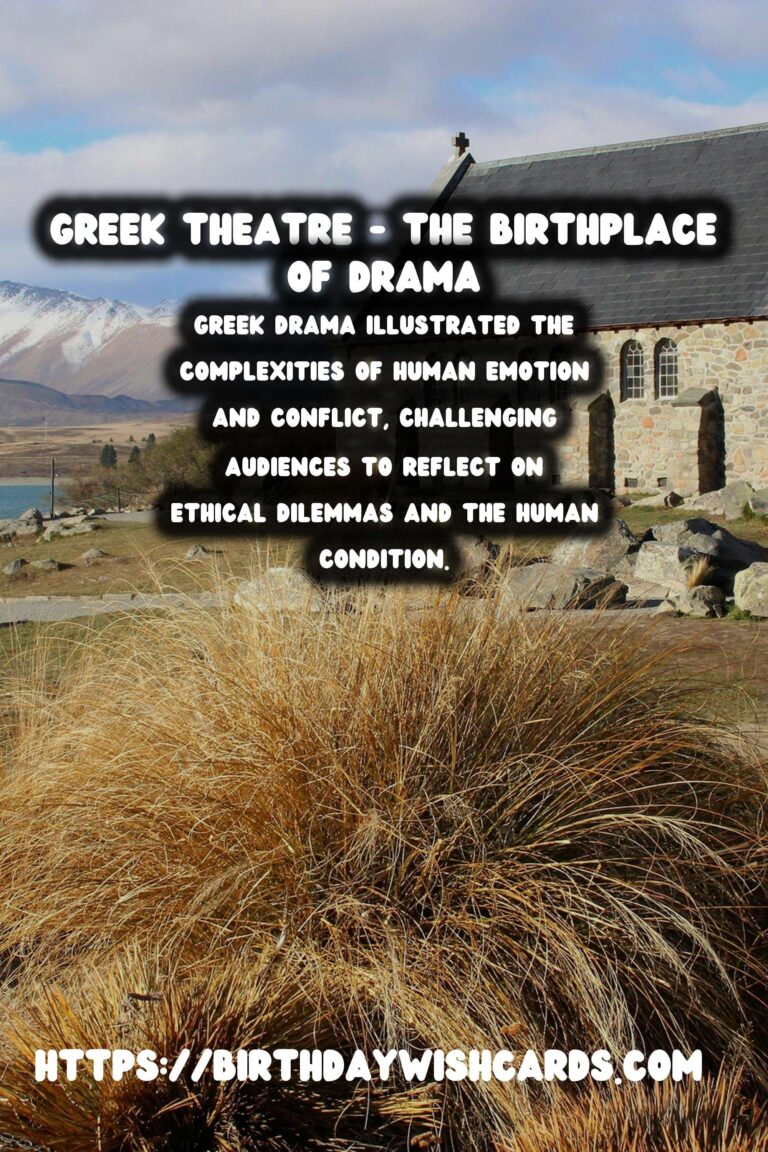

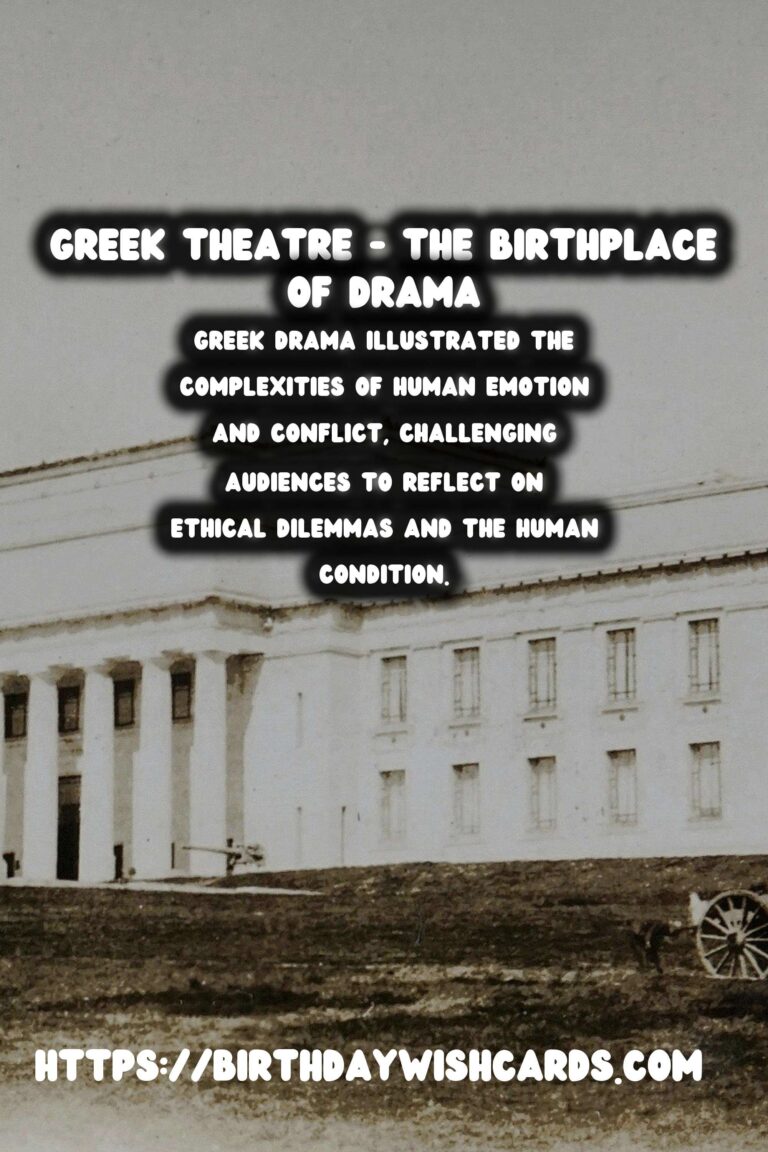
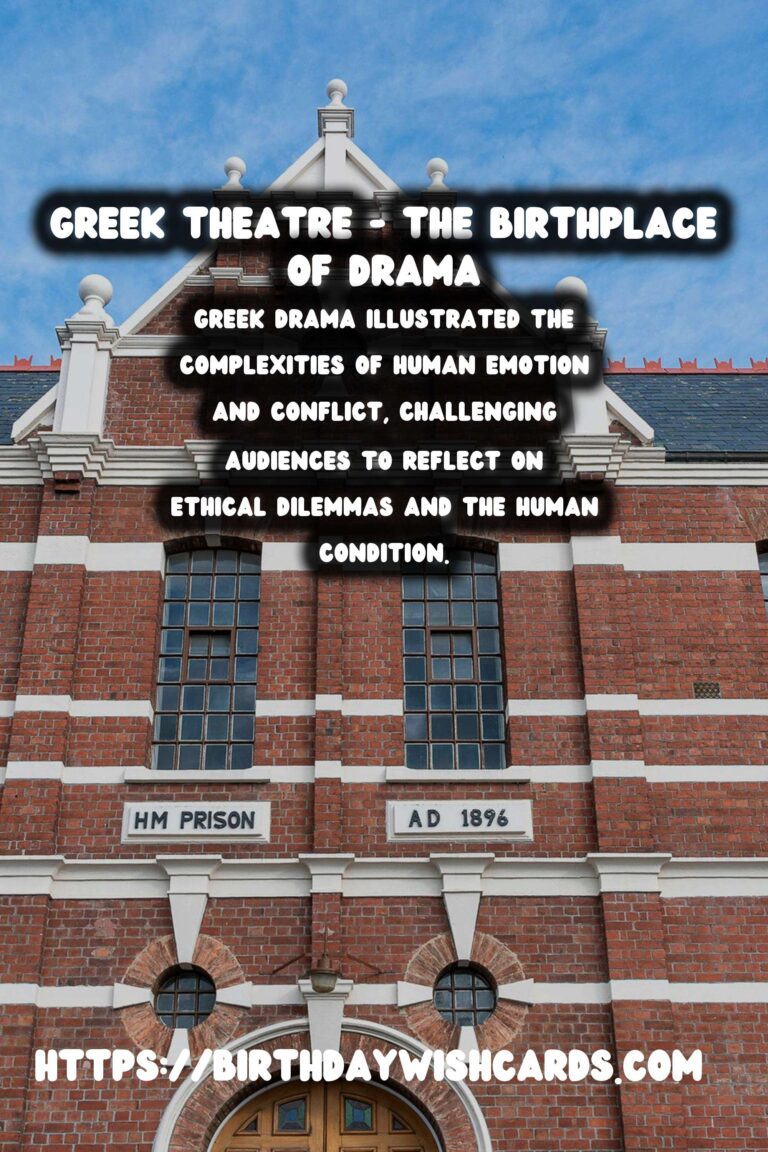
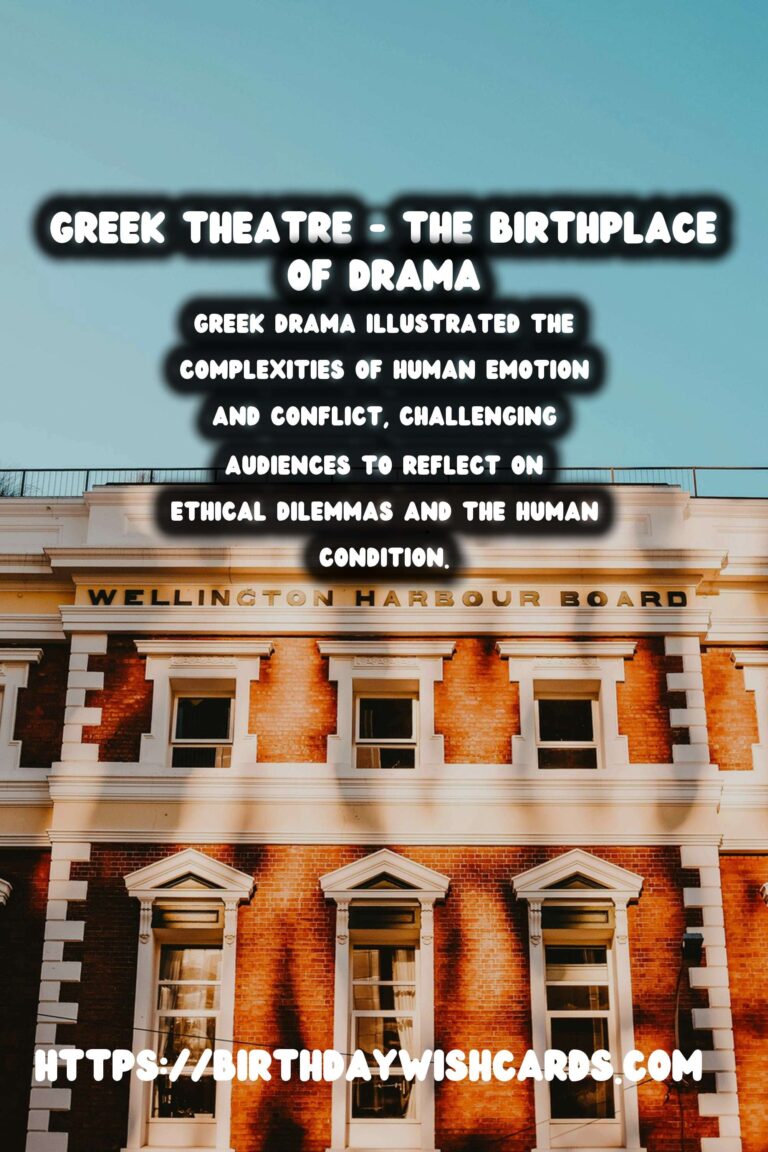
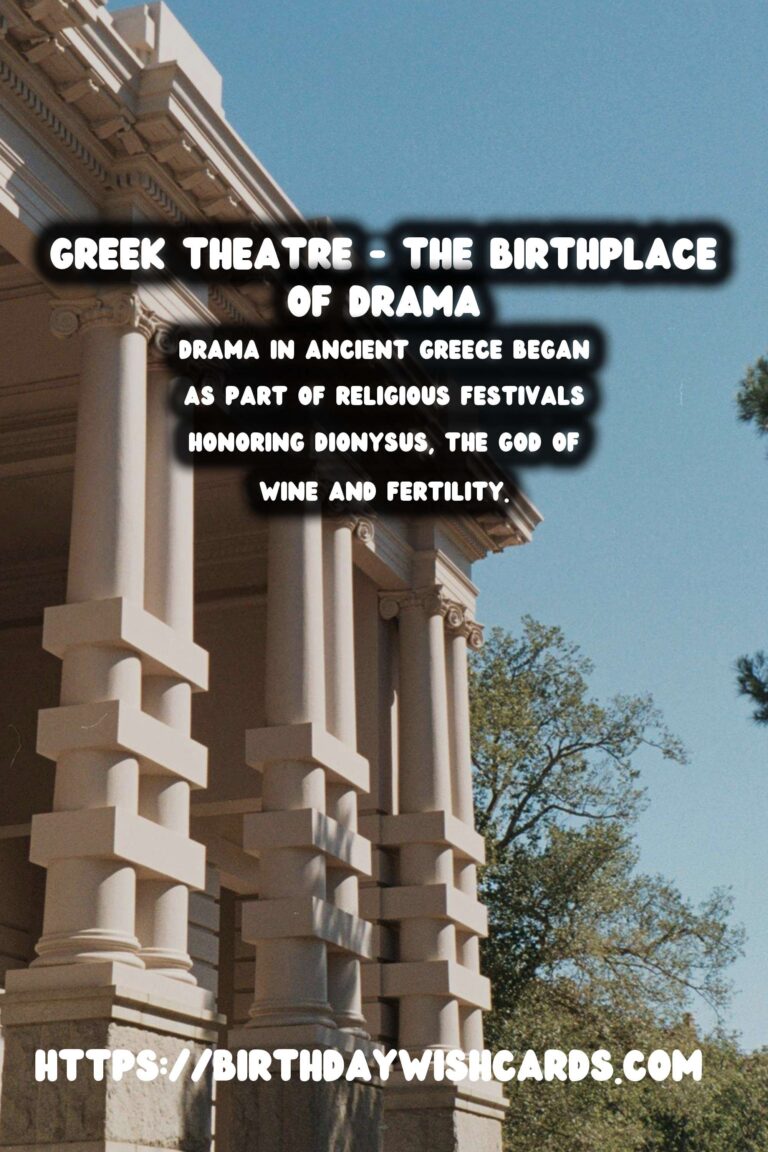
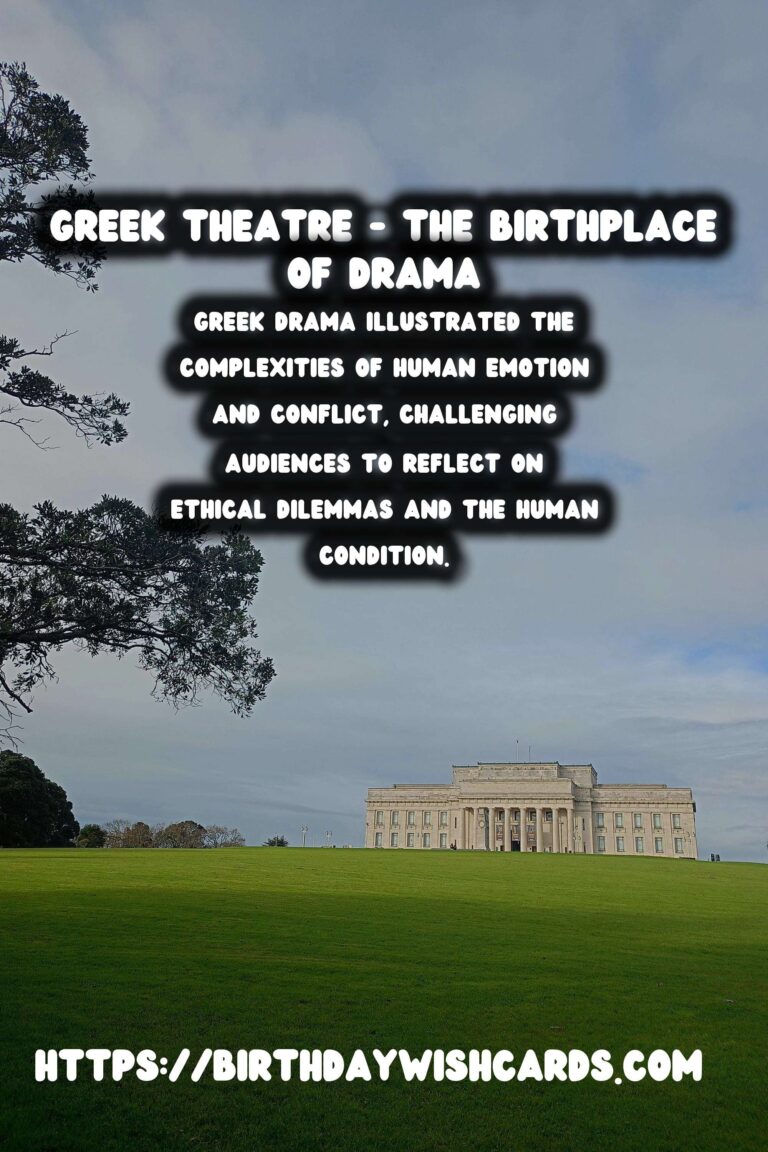
#Drama #Culture




